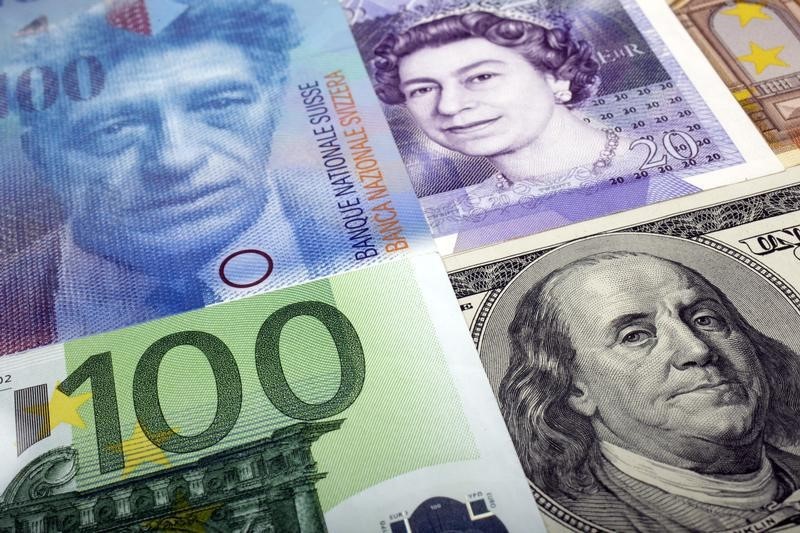Investing.com -- The dollar was broadly weaker across the board early Friday in Europe, with commodity currencies making a comeback after two days of Congressional testimony from Federal Reserve Chairman Jerome Powell that made a bias to easing monetary policy crystal clear.
The global weakness of which Powell warned was in evidence again overnight, as Singapore, whose economy is highly geared to international trade, reported a 3.4% quarterly drop in gross domestic product.
The contraction “exposes the fragility of the global business cycle in a climate of trade disruption, despite a global wall of cash,” said Lena Komileva, managing director of G+ economics in London. “Despite no-recession consensus predictions, loss of economic value and activity has been inevitable, from Singapore to Germany.”
The dollar has also come under pressure after analysts at Goldman Sachs warned of a rising risk that President Donald Trump may authorize direct intervention by the Fed to depress the dollar’s exchange rate.
“We would expect a sizeable market reaction — with a weaker dollar, stronger yen and weaker foreign risk assets,” various reports cited currency strategist Michael Cahill as saying.
By 4 AM ET (0800 GMT), the dollar index, which tracks the greenback against a basket of free-floating currencies, was down 0.1% from late Thursday at 96.542. That’s a drop of around half a percent since Powell began his testimony on Wednesday.
The U.S. hasn’t used foreign exchange interventions as a policy tool for over 20 years, but the current administration’s frustration with what it sees as a too-strong dollar exchange rate is well documented, and President Trump last month accused the European Central Bank of attempting a competitive devaluation when it signaled a shift to an easier policy stance.
The ECB’s intentions, which were underlined in the account of its latest policy meeting which were released Thursday, received the full backing of the International Monetary Fund yesterday. The IMF’s managing director Christine Lagarde has been nominated to succeed Mario Draghi as ECB President when his term ends in October.
The U.S. dollar fell nearly half a percent against the Aussie and Kiwi overnight, and also fell to a nine-month low of 1.3019 against the loonie, before recovering marginally to 1.3026 by 4 AM ET (0800 GMT).
The euro and British pound made more modest gains, rising by 0.1% and 0.2% respectively.
